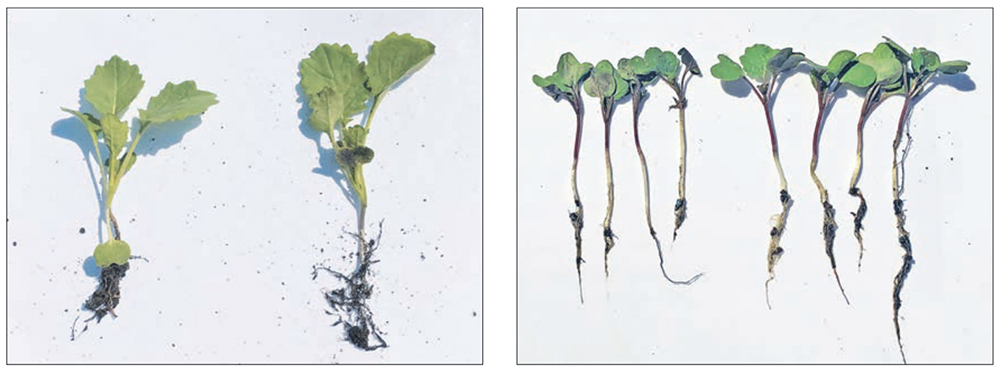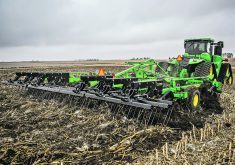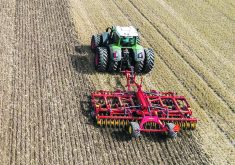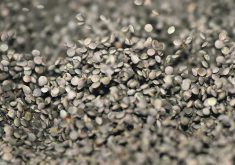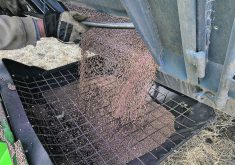Corteva’s latest fungicide covers disease and insects such as airborne blackleg, cutworms and flea beetles
A new active ingredient called Lumiscend that Corteva Agriscience offers in its LumiGEN fungicide package protects canola from blackleg fungus including its airborne spores.
Seed treatments that prevent blackleg-contaminated canola seed from starting an infection have been around for a long time but they offered no protection to seedlings that get infected in the field.
LumiGEN includes Lumiscend fungicide, Lumiderm insecticide and two other active ingredients to provide canola growers with broad-spectrum insect and disease control.
Kirsten Ratzlaff of Corteva said Lumiscend can translocate through seedlings to inhibit growth of the blackleg fungus and protect the crop through a critical growth period.
Read Also

New program aims to support plant-based exports to Asia
Understanding the preferences of consumers in Taiwan and how they differ from Indonesia or Malaysia isn’t easy for a small company in Saskatchewan.
“What we know about blackleg is the early infection that happens at that one- to two-leaf is really the infection that’s going to cause the most yield damage at the end of the day,” Ratzlaff said.
Corteva already has blackleg protection built into its canola varieties but effective seed treatment against the fungus will help preserve these genetic resources.
“Putting the addition of a seed treatment is really sort of the double package to provide what we believe will be industry leading protection from a genetics and a seed treatment combination,” Ratzlaff said.
Lumiscend moves up from the seed through the young canola plants and provides protection at the point of entry from rhizoctonia and blackleg disease pathogens.
Canola plants that have this protection through emergence have reduced risk of severe canker development and yield loss.
Lumiscend inhibits activity of succinate dehydrogenase, an important enzyme in fungal respiration. This inhibits energy production needed for growth and reproduction.
Ratzlaff said having the LumiGEN seed treatment package provides protection against seedling disease complex, which is caused by rhizoctonia, pythium and fusarium fungi.
“We actually saw in a number of sites across the West this year some pressure from all of those diseases. In the seedling disease complex and rhizoctonia in particular. We really did see that boost in protection that we expected to see from the new seed treatment,” Ratzlaff said.
Corteva has approximately 160 sites across western Canada where LumiGEN was trialled by farmers in large-scale canola plots.
“We’re going to have a lot of really great information to work with here as the trials start to come off to give us some more information about the disease presence and ultimately the protection it’s providing and then yield,” Ratzlaff said.
With the presence of Lumiderm in LumiGEN, growers get protection from flea beetles and cutworms too.
There is also a LumiGEN seed treatment package for corn that has two new products, Lumialza and Lumiscend Pro, which is a fungicide seed treatment.
Lumialza is a biological seed treatment and the first corn nematicide seed treatment launched in Canada.
“This is part of our growing biologicals portfolio. It’s the first of the biological type seed treatments that we’re providing,” Ratzlaff said.
“It’s along the vein or the theme of the seed treatments we have, where we are trying to be very targeted and environmentally considerate.”
The LumiGEN seed treatment packages are available with Brevant and Pioneer brand seeds.




